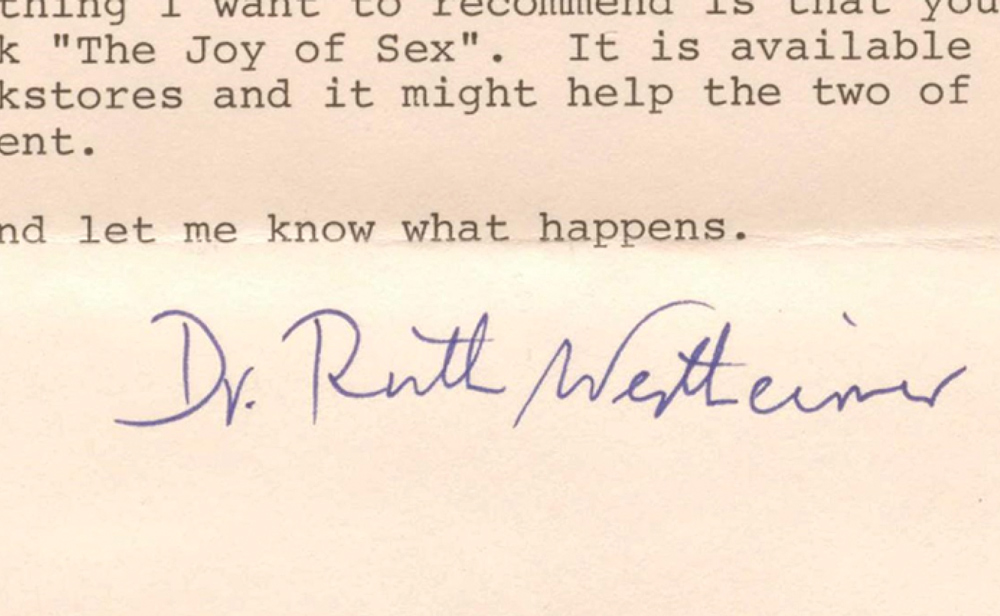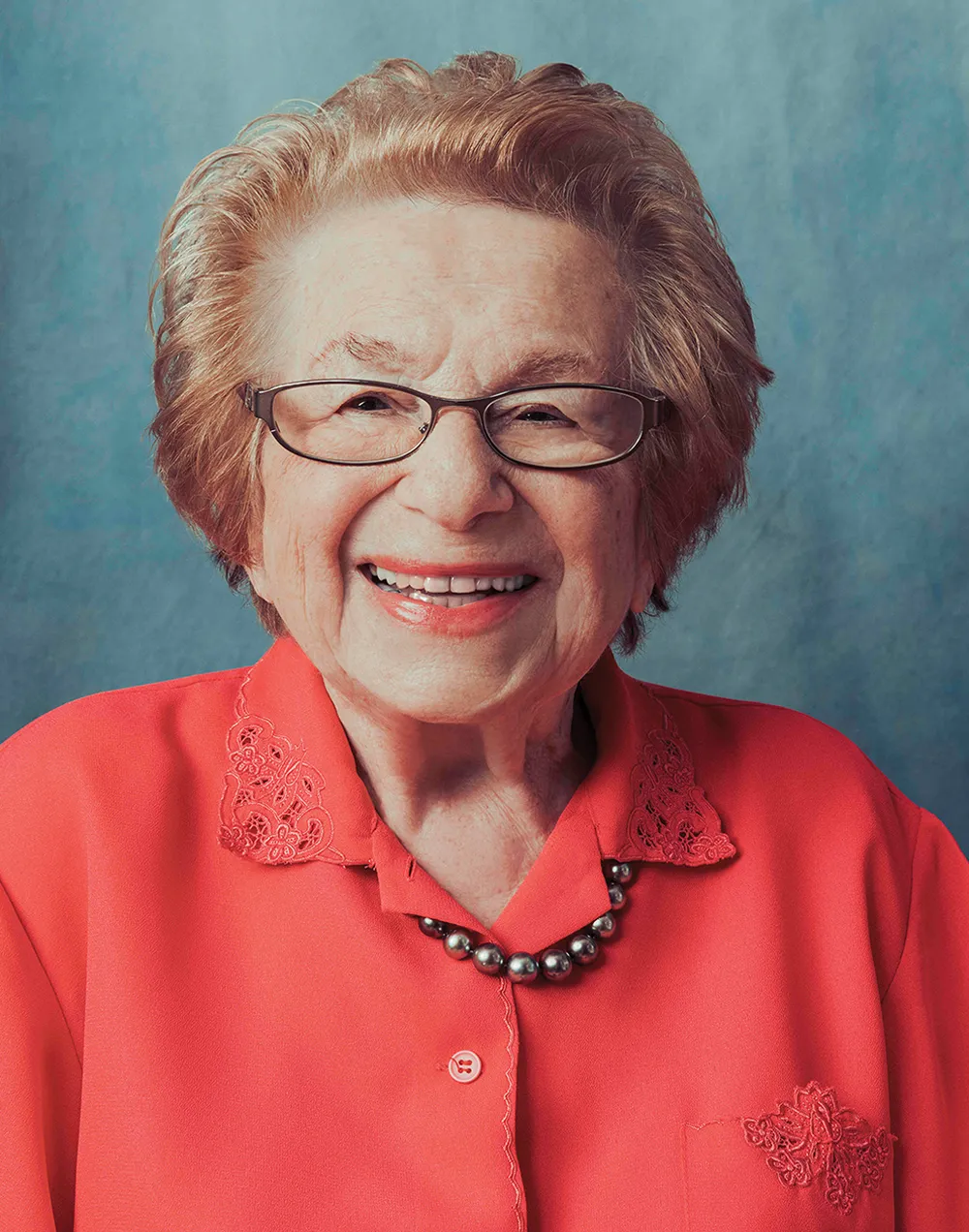

On the Air and in the Archive
Dr. Ruth first went on the air in 1980 in New York City. Only radio listeners with antennae strong enough to pick up New York’s 97.1 FM station could hear her German-accented voice until 1984, when NBC Radio nationally syndicated her program, “Sexually Speaking.” Her audience grew with the premiere of “Good Sex! With Dr. Ruth Westheimer” on Lifetime Television in 1984.
The Library’s Manuscript Division recently opened the Dr. Ruth Westheimer Papers for research. The collection consists almost exclusively of audience letters sent to Dr. Ruth from 1980 to 1986. Writers sought guidance for their problems regarding sexual experience (How do I achieve orgasm?) or relationship issues (Should I leave him?).
Dr. Ruth answered these questions in writing and on the air with a directness that made her popular. She spoke to audience members of all ages and sexualities. She gave advice about specific sexual acts or positions to help individuals dealing with insecurities, inexperience or physical limitations. She frequently interrupted callers to ask, “Are you using contraception?” and advocated for safe sex practices to help her listeners achieve “terrific sex!”
Dr. Ruth passed away earlier this year after 40 years of listening to the nation’s sexual and relationship problems and providing empathetic and straightforward advice through her books and shows.
Her papers in the Manuscript Division document the rise of her popularity in the early 1980s. They also provide a deep insight into the sexual frustrations and obsessions of the era and are a unique resource for anyone who wants to study the evolution of America’s sexual mores.
